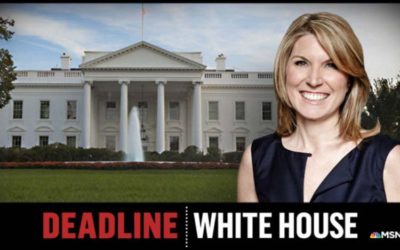IG Report Says No Evidence Comey Influenced By Politics In Clinton Email Probe
A much-anticipated inspector general’s investigation found no political bias in the Hillary Clinton email probe, but still condemned the former FBI director.
A report by the Justice Department’s internal watchdog found no political bias in the conduct of an investigation into Hillary Clinton’s use of a private email server and account, but it offers a scathing condemnation of how former FBI Director James Comey and other FBI employees handled aspects of the investigation, including extensive violations of Justice Department rules and protocols.
The report from Inspector General Michael Horowitz is a blow to both Comey and President Trump, who have fought a protracted battle in the press since the president abruptly fired Comey in May 2017. For Comey, the report is a harsh indictment of his judgment and decision-making that tarnishes his long career in law enforcement. The report also criticizes former Attorney General Loretta Lynch and several other Justice Department officials.
Yet the report also rejects Trump’s claims that the FBI went easy on Clinton. Investigators found no evidence that the FBI avoided charges because of political bias—ultimately concluding the decisions made during the investigation were reasonable. Trump has positioned himself to dismiss these findings, however. The president has repeatedly said that the Justice Department is a hive of political conspiracy against him.
There are elements of the report that show deep antipathy to Trump among some employees of the FBI, including newly revealed text messages between Peter Strzok and Lisa Page, who worked together at the FBI, and whose communications Trump has said are evidence of a conspiracy against him. Page has since left the bureau.
In the report, Comey’s approach to two connected incidents comes in for special opprobrium. The first is Comey’s July 2016 public announcement that he would recommend no charges against Clinton. The second is his decision to write to members of Congress 11 days before the presidential election, with the shocking news that the FBI had discovered new evidence in the Clinton case.
In the first instance, Comey violated protocol by making a public announcement, rather than sending a recommendation to Lynch, then the attorney general. Comey has said he made that decision because Lynch had met briefly with former President Bill Clinton on the tarmac at a Phoenix airport some days earlier, and he believed that if she made the announcement, it would be viewed as politically tainted.
Comey may be right—Lynch has been subject to withering and justified criticism for the chat, though she says the email probe was not discussed. The IG said there was no evidence to suggest otherwise, but added, “We also found that Lynch’s failure to recognize the appearance problem created by former President Clinton’s visit and to take action to cut the visit short was an error in judgment.”
But Horowitz’s report also determined that Lynch’s lapse in judgment did not grant Comey license to make his own recommendation public. In his public remarks at the time, Comey called Clinton “extremely careless” with classified information, but said there was no basis for charging her with a crime.
In addition, the report faults Comey for withholding his plans to announce the recommendation from his bosses at the Justice Department, and for instructing employees to do the same. That decision was “extraordinary and insubordinate,” the report says, adding that “none of his reasons [was] a persuasive basis” for breaking longstanding policy.
The second incident came in the closing days of the presidential campaign, when Comey wrote to members of Congress to say the FBI was reopening its inquiry in light of newly found emails on devices belonging to disgraced former Representative Anthony Weiner, who was married to top Clinton aide Huma Abedin. DOJ policy holds that the department should not make announcements that could affect the outcome of an election, but Comey has said he was concerned that if he did not announce the emails publicly, he would be misleading Congress by omission, having publicly closed the case.

